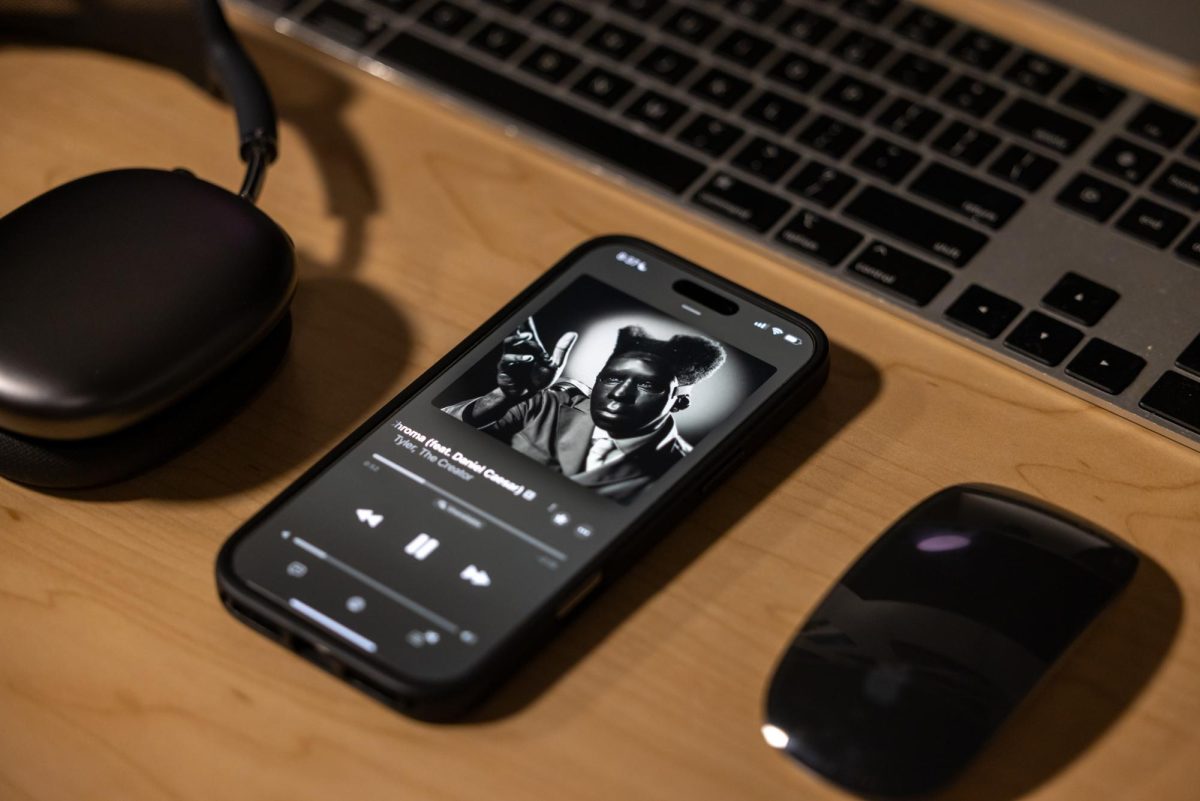With her 2013 debut album Same Trailer Different Park, Texan singer/songwriter Kacey Musgraves catapulted herself to stardom with a set of tunes nearly impossible to find in today’s country music.
She blends her small town observations with unapologetic, forward-thinking anthems, creating a repertoire the average southern belle would avoid.
In many ways Musgraves builds her music on a platform of observing small town life exactly the way she sees it. More often than not, this means dropping the idealized version of southern, rural America many bro-country stars of today continue to embrace. Not only did her first set of ballads challenge popular country themes, they also broached formerly taboo subjects in country music, such as homosexuality and weed in her well-known song “Follow your Arrow.”
With the release of her sophomore album Pageant Material, Musgraves is again making waves in Nashville. Pageant Material debuted in first place on Billboard Country’s charts in early July, selling 54,752 copies its first week on the stands.
But while the hot sales and media attention are certainly warranted — her sophomore album certainly will satisfy those who fell in love with her feel-good, impenitent anthems — Musgraves falls short of producing a career defining work with songs like “Merry Go ‘Round” that could make the kind of splash to rock the Nashville boat twice.
Of course, this doesn’t mean she failed to include tracks that would define the album and summer’s country music offerings. Some songs come close to what allowed her to reap the attention from her first album. Tracks like “Biscuits,” which Musgraves co-wrote alongside Brandy Clark and Shane McAnally, hit the sweet spot “Follow Your Arrow” did, mixing catchy melody while preaching tolerance.
In an interview with radio.com, Musgraves said these are the types of songs she even now feels a bit weary playing live, given the make-up of some of her audience. Yet, she pushes on with these types of tunes, even mentioning their accompanying challenges. In “Good ‘Ole Boys’ Club,” she sings, “If I end up going down in flames, at least I know I did it my own way.”
Another highlight of the album, “Somebody to Love,” combines an endearingly honest depiction of the paradoxes of small town life, strikingly similar to the melancholic lyricism of “Merry Go ‘Round.” Despite the progressiveness of many of her songs, it’s clear Musgraves not only has a deep respect and adoration for where she came from, but a profound understanding as well.
Songs like this, which take advantage of crooning steel guitar, are what truly separate Musgraves from the rest. Her preference for authentic, simplified instrumentation and provoking lyrics place her much closer to country legends like John Prine, Johnny Cash and Loretta Lynn than most any country star today could ever dream.
Admittedly, many of the themes in this album might be a little too similar to her last one to warrant its unfettered praises. More so, some songs too conveniently reflect on the novelty of her own chosen progressive themes, a tactic which, if left unaddressed, could lead to a slump down the road.
But despite what might come off as a lack of novelty in lyricism on her second production, she ought to be proud of her commitment to not cave to what she describes as the “big machine” in “Good Ole’ Boys’ Club,” which she admitted in an interview with Fader Magazine is a reference to the Nashville record label that helped Taylor Swift’s notorious rise to fame. She objected to having any qualms with Swift in a radio.com interview, but Musgraves certainly provides us with a taste of how Swift might have turned out had she not bowed to the dollars of pop music.
Musgraves, with a commitment to bringing back authenticity, is a breath of fresh air for Nashville. She just needs to reflect upon how she wants her message to evolve.
In a bonus cover track her idol Willie Nelson originally wrote, “Are You Sure,” Musgraves sings, “Look around you, are you sure this is where you want to be?”
If Musgraves heeds Nelson’s advice, she might just have the staying power to be considered in his caliber.














